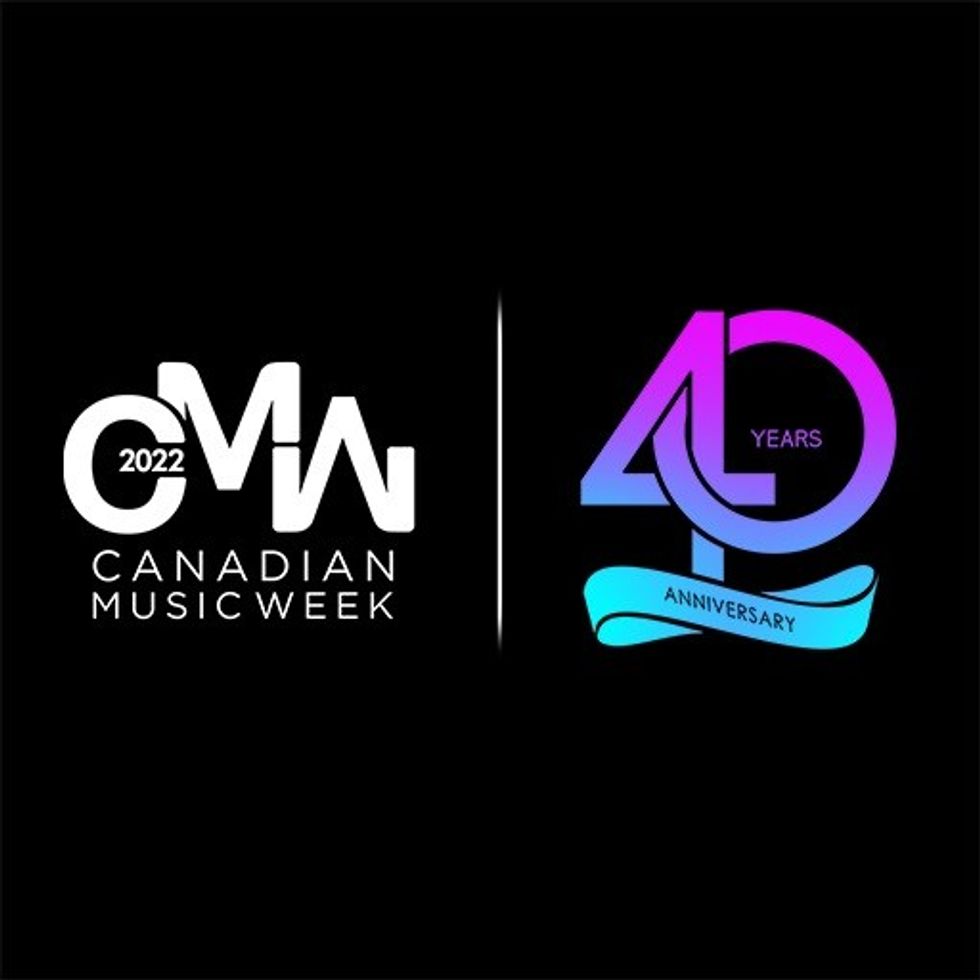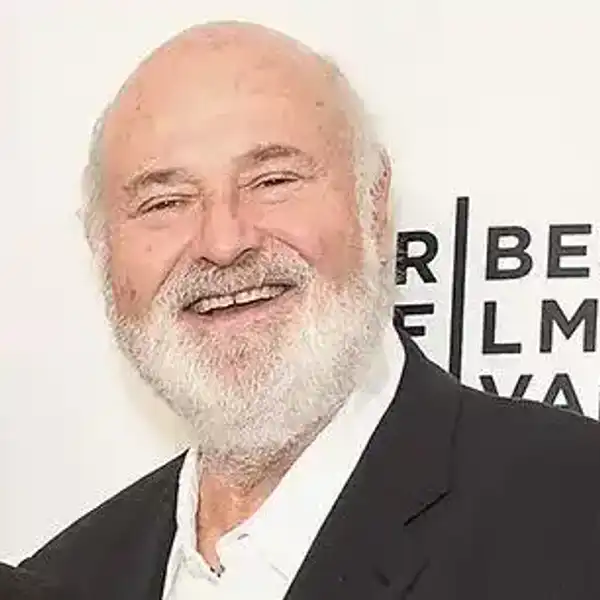CMW 2022 Selected Seminars: July 8 and 9
The first two days of CMW Conference seminars were covered by Nick Krewen and Kerry Doole. Here are their observations and some key takeaways.

By FYI Staff
CMW 2022 SELECTED SEMINARS, WEDNESDAY JULY 8. Reports by Nick Krewen
10:40 a.m.: The Intersection of Science and Music: How AI is Empowering Deep Audience Understanding
What was supposed to be a seminar on how artificial intelligence (AI) is empowering deep audience understanding ended up being pretty superficial, mainly because Dr. SK Sharma, Chief Analytics and AI Officer of Ingrooves Music Group and moderator Sarah MacKenzie really didn't address the topic at hand.
The only real takeaway from this conversation was that Sharma - who is, by all accounts, a genius when it comes to having a handle on all things A.I. and even creating a couple of patents - recommends that marketing dollars should be invested in programmatic advertising - a popular move by agencies and brands when implementing ads into visual mediums - but the correlation with the music world wasn't really made clear.
GRADE: D
1:10 p.m.: Web3, AI, and New Opportunities
The members of this illuminating panel all agreed on one thing: wherever we are in this evolution of new technology and its relation to - and impact on - the music industry, it's just the tip of the iceberg.
PANEL: Moderator - Hazel Savage - V.P., Music Intelligence, Soundcloud and co-founder, Musiio, the AI music company recently bought by Soundcloud for a rumoured $10M and whose software "listens" to music; Geoff Osler: Co-founder and CEO, Sing, a Web3 consumer distribution platform which uses NFTs as its base technology; Jessica Powell: Co-founder and CEO, Audioshake, whose AI technology separates fully-produced songs into stems for synch use in TV and film, remixing and remastering, among other things; Inder Phull: Co-founder and CEO, Pixelynx - a metaverse music gaming company also co-founded by Canadians Joel "deadmau5" Zimmerman and Richie Hawtin; Jheanelle Henry, artist manager/partner, Jarjourco (a label, publishing and creative agency/Head of Artist and Talent Relations, MySeat Media - an app that links artists to their super fan base - and Rick Salmon, Director, ATC Management and Co-Founder/ CEO, Driift, a live streaming business that generated revenue of $70-$80M in its first year.
DEFINITION: Web3 - an internet where users own and control the platforms that they're using. Relating to ownership of digital assets, NFTs are one product available to exploit this newer technology.
TAKEAWAYS: Pixelynx is developing new gaming environment platforms that would create new formats around music consumption. First mobile app is launching in August in partnership with Pokemon Go creators Niantic; a platform which Inder Phull claims "will unlock a new format for music."
Rick Salmon: The new business really working in an old-fashioned structure. We have to make the technology more mainstream so we can make more money for the creators.
Geoff Osler: The industry is profoundly broken. Artists are not making money off their primary product. Let's use that technology to get back to a place where artists see 95% of the gross revenue and get it right away.
Jheanelle Henry: Pinpoint the data - you're able to know who your fans are from Day One. Focusing on the best way to use the technology and aggregating data so you can plan your career around these fans who follow you everywhere.
Inder Phull: Gaming will consume the world. The role of blockchain is important and will allow for new business models, but gaming will underpin all of it.
Rick Salmon: When the pandemic hit, Salmon's ATC Management had to cancel over 100 tours. Found Driift as a concept and Laura Marling was first artist to play a beautiful, empty venue, use a cinematic director and six cameras to shoot the concert. Cost £40,000 to produce. Needed 3500 tickets to break even. Sold 8,000 - made money. Another concert featuring Nick Cave sold 40,000 copies and brought in just under $1M in revenue. Realized it was a viable business.
Geoff Osler: Last year, Sing connected with Our Lady Peace's Raine Maida, who educated them about the music space. Started offering copyrights - creating a timestamp paired with identity and idea on the blockchain. Currently trying to create "a market that makes sense for artists."
Jessica Powell: Says Audioshake is working towards the day when "normalized" stems - which she says are consistent, reliable and standardized - can be adapted and customized for any experience, including fan engagement.
Rick Salmon: Driift decided to livestream the last night of Little Mix's tour in the U.K. Driift sunk £150,000 into production, hoping to sell 40,000 tickets. Sold 87,000 and generated just shy of $2M, with one-third of the gross revenues arising from merch sales sold through the livestream platform. Points out that a year earlier, the concept didn't exist.
Inder Phull: It's not about any one of the new technologies (Web3, AI, VR, NFTs) but the convergence. What excites me is this new breed of artists that this era will unlock.
SYNOPSIS: Visionary panel giving us a glimpse of the immediate future and the realm of possibilities within. Highly informative.
GRADE: A
3:00 p.m. - Nifty NFTs - Game-Changing, Non-Fungible Token Enterprises.
This panel managed to demystify some of the information about NFTs and explain their potential.
PANEL: Moderator - Jermaine Clayton, President (Management Division) Awesome Productions & Management; Ken Umezaki (Co-founder/CEO Verifi Media) a media technology services company to help secure creators' rights across the digital value chain, among other things; Mani Singh CTO, Weav Music - a start-up specializing in adaptive music technology ; Paul Eastwood, VP, Sports and Entertainment, Orderinbox - the social NFT marketplace for the metaverse and Thomas Cermak, CEO, Yuser - a social NFT platform that's decentralized.
DEFINITIONS: De-Fi: an umbrella term for decentralized finance and the blockchain-based crypto universe, advocating the construction of a new internet financial system that replaces traditional institutions like banks.
DEFINITION: DAO: Decentralized autonomous organization, which someone in the audience described as a "chatroom bank account."
Paul Eastwood (formerly an executive with Universal, BMG and Anthem Entertainment) - What's really positive is that NFTs speak to a creator economy. It's all about the value you bring to the NFTs. There is a value proposition between your music and between whatever other utilities are contained within the NFT smart contract. It's a new revenue stream which people can take advantage of...artists, photographers, digital artists music creators, but if you don't promote it, nothing is going to happen.
Mani Singh: An NFT is whatever you write into the contract. The contact is automated and enforceable. These are automations that the music industry has been lacking for some time.
Ken Umezaki: NFTs are an additional way to monetize business.
Thomas Cermak: If you can find 1000-10,000 people on this planet you can call superfans, you can make a living at music right now. There's a lot of opportunity to monetize with a very small group.
Ken Umezaki : You can't take NFTs anywhere in the metaverse. Need to be able to move them around and see them.
Thomas Cermak: It's going to allow you to create collectives and fashion your NFTs within your community. Access to physical content is NFTs is the next step.
Paul Eastwood: "Scarcity" is the key important word when it comes to NFTs. A killer in the industry is inventory. I'd rather mint 300 of something and have it sell out than 500 and have some of it left over.
Thomas Cermak: If we want to re-shape distribution, we need people who feel like they're not represented in traditional industries to get in now and start to shape things. This the time to break stuff and experiment.
SYNOPSIS: With NFT trends like the "Bored Apes," the demand for NFTs can exist and prosper within a fairly small but sizeable community. This panel did pretty well with the explanations, although a few definitions were left unexplained. Either way, it seems that the commercial potential and excitement surrounding non-fungible tokens may be justified.
GRADE: B+
3:55 - Star Tech: Music Enterprises Boldly Going Forward
If you felt you needed to hear success stories to cement your belief in a digital future, this was the panel that provided them.
PANEL: Moderator - Wilson Hays, Head of Business Development, PEX - a digital rights technology that enables the fair and transparent use of copyright online; Damien Ritter, COO, BeatStars - a digital production marketplace that allows music producers to license, sell, and give away free beats; Hazel Savage (Soundcloud) and Jessica Powell (Audioshake) (see 2nd panel.)
Damien Ritter: BeatStars is the No. 1 destination for recording artists to purchase beats, so producers get alternate revenue streams. Producers often felt like the negligent stepchild - they rarely get paid on time and sometimes never get paid. For the artist, we have a database of songs for artists to purchase, license and a pretty cost-effective license that ranges from $25 to $250K.
Hazel Savage: Soundcloud, which purchased Musiio in May, uses AI to listen to a large volume of tracks, and provides such granular metadata as the genre, the BPM, the key, the recording quality, whether the track has a vocal: "we can tell you all that."
Jessica Powell : Up until recently, the Audioshake technology to separate stems didn't exist. "Now it doesn't matter if the recording is from the 1830s - we can pull it apart." Also helped Green Day recreate the album Kerplunk! from stems when the band lost the masters.
Damien Ritter: This year, BeatStars paid out $200M to producers, an increase from $50M in 2019. "That's pretty impressive," he says.
Hazel Savage: She and her co-founder sold Musiio to Soundcloud on the condition that the Musiio technology would remain untouched and available. The company kept its word. "I wanted to provide a product that leads to a better music industry."
Hazel Savage: It's better to show than tell. Clients are more interested in the results.
Jessica Powell: Listen to what your customer wants and deliver.
Damien Ritter: Some producers have six-figure years on BeatStars. We also have a partner that scans the Internet for unauthorized users.
Synopsis: The trio of Savage (when she owned Musiio), Powell and Ritter all have successful companies and discovered innovative ways to monetize some previously unaccounted-for needs. A strong cause for optimism.
GRADE: A
Note: There was a familiar face on the How Can (Good ) Data Improve Your Business panel: ex-SOCAN CEO Eric Baptiste. A year ago he started up his own company and is President and CEO of QwantumRights Solutions, which consults and outsources and helps customers and clients in the rights management business "in music and beyond" figure out how to manage their data. So far, he's helped people launch new collectives and figure out how to sell data services to rights managers to make the distributions more accurate.
FINAL THOUGHT: A great first day of exemplary updates about current music industry frontiers. And on a side note: not sure he coined the phrase, but stopping in at Universal Music Canada Chairman & CEO Jeffrey Remedios' keynote speech at noon, his description of the current music business as "the attention economy" is an apropos description that speaks volumes.
CMW 2022 SELECTED SEMINARS, THURSDAY JULY 8. All reports by Kerry Doole
9.00 am Eye to the Future: Music Execs Address the Industry’s Key Issues
An all-female panel of music industry notables tackled a range of the major issues facing the business. The CMW preview blurb read: "It's been a few testing years for the creative sector but it's also been a time of technological changes, with growth in streaming, gaming and other fields. What will be the contours of the music industry in the future? Will web3 be transformational? Can the investment wave in music assets be sustained? Can rights management organisations meet the challenges of an ever-growing number of usages? Does streaming need fixing? These and many other questions will be answered by this unique panel of leaders in their respective fields."
PANEL: Moderator - Heather Gibson, Exec Producer, National Arts Centre
Panelists: Angela Barkan - SVP Marketing, BMG; Annalie Bonda - Executive Director, The Remix Project; Helienne Lindvall - President, European Composer & Songwriter Alliance (ECSA); Lisa Logutenkow- VP, The Orchard; Shauna De Cartier - President, Six Shooter.
TAKEAWAYS: As moderator Gibson cautioned at the outset, time did not allow an exploration of all the issues listed. NFTs were addressed only very briefly, with an unhelpful example. Here are some of the interesting observations presented:
Bakan: “My first viral TikTok hit came during Covid, but you can’t make something go viral. Don’t have faulty expectations."
Logutenkow: “You have to be able to read and follow the data and be ready to jump."
De Cartier: "You need to be able to identify sparks and spikes and go from there. We are working in a global environment now. You learn that streaming numbers do not translate to ticket sales.”
Bakan: "Data has got so good these days. You can go so deep and get so specific."
Lindvall: “Artists feel like a milking cow, under so much pressure to constantly produce content for TikTok and social media platforms. A mental health tsunami is coming.
De Cartier: "We hired 7 people during the pandemic, to help change our business model and focus on things like synch and socials. It is still a bumpy road back with shows. Touring is an expensive way to promote your music, but is still essential for longevity, rather than just having a viral moment.”
Lindvall: “As songwriters, we know how hard it is to make a living from streaming. From a million streams on Spotify, I believe the sole songwriter of a song earns 480 Pounds. If there are four writers on a song, you get maybe 100 Pounds a song, and we all know how hard it is to get a million streams."
"In the UK, artists came on board the Fix Streaming campaign, with a petition, and that led to an inquiry that determined the split of revenues is not helping music creators. The US Copyright Board that sets rates hasn’t changed the rate since 2006. The major music companies control the major record labels and publishers, and they push the record side. Vertical integration is suppressing songwriters' income. There is no incentive for the majors to fix the problems of revenue sharing.
Bonda - re the new technologies (web3, Re Web3, NFTs, blockchain): "They provide an opportunity for artists to take things into their own hands and gain equality."
De Cartier:" We are in a transitional phase, and there is potential. It is about staying true to your art and getting thru the jungle to deliver that art."
SYNOPSIS: A generally informative session, and it was pleasing to see an all-female panel discuss non-gender-specific issues.
Rating: B+
11:25 am Can You Loan Me A Dime?
CMW blurb: "The business of buying and selling catalogues has been booming over the past two/three years, with major artists' publishing rand ecording catalogues changing hands for significant amounts. Is this wave sustainable? What makes a deal a good deal? Can the market sustain such prices? And what is the end-game for all these investors? A group of music executives and finance experts will share their expertise about how to navigate the business of acquisitions."
PANEL : Moderator - Emmanuel Legrand, Journalist/Consultant/Editor, The Creative Industries Newsletter
Panelists: Dr. Catherine Moore, Adjunct Professor, Music Technology & Digital Media Program, University of Toronto; Michael McCarty, CEO, Kilometre Music Group; Patrick Curley, President, Third Side Music; Rell Lafargue, President and Chief Operating Officer, Reservoir.
TAKEAWAYS: The very au courant theme of blockbuster music catalogue sales and acquisitions was explored in depth by these publishing industry notables. Some highlights here:
McCarty: "A simplistic explanation of this boom is that Merck [Mercuriadis of Hipgnosis) made it cool to sell your rights. The market has grown, and valuations are increasing. Covid has been a factor in this seachange. Plus estate planning for families is a complex business, and it can get divisive and screw up families. That realisation has helped encourage more catalogue sales."
Lafargue: "We started Reservoir in 2008, a dark time for the music industry, but streaming has brought it back. More people are listening around the world, and there is potential for more growth. We used to work with a 6x multiple approach - if a catalogue brought in $100K per year, we would buy for $6K. Now we are looking at 20x multiples. It is cool to sell your catalogue now."
McCarty: "We work with a Bay Street firm [Barometer Capital Management Inc.] that has the investor contacts. Our profile focuses on family investment teams, but institutions are keen now. Song catalogues are a credible asset class, and there is interest in the fact that the cash flow is steady."
Moore: "Nothing ever goes out of print, and that helps give access to capital. I started valuing catalogues in 1997. The key is technology, and there is now a market for lyrics too."
Lafarge: "Reservoir started as a family business, but we are now a public company, and the first US independent publisher to be on NASDAQ."
Curley: "We are a true independent. We primarily provide administration services, such as the collection of royalties, and we also do artist development. We help artists build their careers while keeping their catalogues. One current example is [Polaris Prize winner] Colin Stetson, who is now big in the scoring world and is able to own those scores. Synch licensing is half our company, and we have a real variety of material."
McCarty: "At Kilometre, our mission is to buy back the Canadian invasion. Toronto right now influences the sound of global pop, through producers, songwriters, and artists, but little of that comes back to Canada. We are targeting Canadians who are globally successful."
Lafarge: "To obtain catalogues we are in contact with managers, lawyers, songwriters, and brokers. We have networks of thousands of people globally to see what is up for sale."
SYNOPSIS: A valuable and educational panel on one of the hottest topics in the music industry at the moment.
RATING: B+
11:45 am - It All Starts With The Song
CMW blurb: "Join the Songwriters Association of Canada and Music Publishers Canada as they look at the importance of songwriting and music publishing to the Canadian music industry and the international market. The panel will explore the songwriting process and discuss the business of how Canadian songs are taking over the world. MPC and SAC will also update their plans for the rest of the year and how you can become involved."
PANEL: Moderator - Margaret McGuffin, CEO Music Publishers Canada
Panelists: Arun Chaturvedi, President, Songwriters Association of Canada; Reeny Smith, Singer/Songwriter/Producer, Cymba Music; SATE, Artist; Vince Degiorgio, CEO, CYMBA Music Publishing.
TAKEAWAYS: Comprising three songwriters/producers/artists and a renowned veteran songwriter and publisher, the panel provided solid advice for aspiring songwriters and artists. Skilfully moderated by McGuffin, it also gave information about the activities of MPC and SAC. Some highlights:
Degiorgio: "My advice for a new writer going to a songwriting camp is to go and have the most fun. Ingest the fumes and lean things about you there."
Chaturvedi: "Networking in these camps is almost more important than the co-writing. Find real friends and potential future collaborators amongst those there."
McGuffin: "The MPC Women in the Studio initiative [for aspiring producers] now has 27 graduates."
Smith: "My publisher Vince Digiorgio told me to sign up for Women in the Studio. That was at the start of the pandemic when I had nothing but time. It was a great experience to learn the craft from wonderful mentors. I formed friendships and made colleagues, an experience that will last a lifetime."
SATE: "I really want to be in that program!"
Chatuverdi: "At SAC, we are serious advocates for songwriters, who are low on the music business food chain. Bill C11 and copyright legislation is a massive issue for us."
SATE:" I am on the SAC board and am learning more about advocating for songwriters. Without the song there is nothing!"
Digiorgio: "We are making songs for the world. Reeny is co-writing with Korean and Japanese artists and writers, as we knew her songs could magnetise there. It is the greatest thing to have a song discovered elsewhere. I remember walking through a street market in Taiwan and hearing three of my songs in Mandarin! Don't just count on home to make your career."
The panelists then updated the audience on their current and future creative work. Recently nominated for a Juno, SATE is profiled in a new documentary on black Canadian rock musicians, The Onyx Experience. Chatuverdi is producing singles in the US and has started a new independent label, while Smith is producing singles for a brother and a cousin, gigging extensively, and planning to record Christmas and gospel albums. Re-elected to the Board of MPC, Digiorgio has been signing more artists/writers to Cymba, and will be working in Japan soon, while McGuffin and MPC are working on a Nordic Songcamp, a NXTGen mentorship program, and the recently-launched Songwriting and Music Publishing Award, in association with Music Canada. More on MPC in this FYI feature.
SYNOPSIS: The session provided cogent advice for songwriters as well as information on two organisations important to them, the Songwriters Association of Canada and Music Publishers Canada.
RATING: C+

















